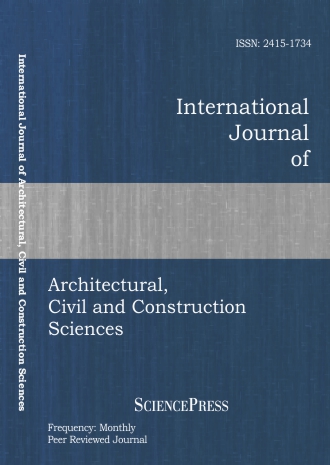
Scholarly
Volume:4, Issue: 10, 2010 Page No: 332 - 337
International Journal of Architectural, Civil and Construction Sciences
ISSN: 2415-1734
1621 Downloads
Effects of Sea Water Level Fluctuations on Seismic Response of Jacket Type Offshore Platforms
To understand the seismic behavior of the offshore structures, the dynamic interaction of the water-structure-soil should be assessed. In this regard the role of the water dynamic properties in magnifying or reducing of the effects of earthquake induced motions on offshore structures haven't been investigated in precise manner in available literature. In this paper the sea water level fluctuations effects on the seismic behavior of a sample of offshore structures has been investigated by emphasizing on the water-structure interaction phenomenon. For this purpose a two dimensional finite element model of offshore structures as well as surrounded water has been developed using ANSYS software. The effect of soil interaction with embedded pile foundation has been imposed by using a series of nonlinear springs in horizontal and vertical directions in soil-piles contact points. In the model, the earthquake induced motions have been applied on springs and consequently the motions propagated upward to the structure and surrounded water. As a result of numerical study, the horizontal deformations of the offshore deck as well as internal force and buckling coefficient in structural elements have been recorded and controlled with and without water presence. In part of study a parametric study has been accomplished on sea water level fluctuations and effect of this parameter has been studied on the aforementioned numerical results.
Authors:
References:
[1] K.J. Venkataramana, and K. Kawano, "Nonlinear dynamics of offshore